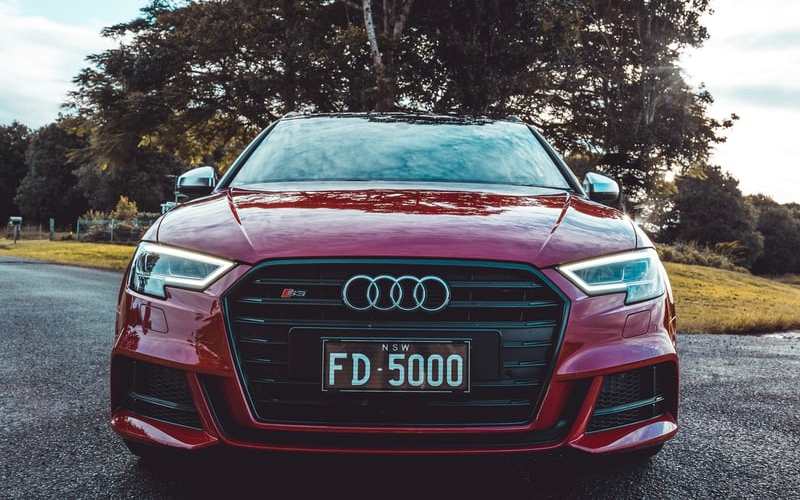If you’re an Australian business owner or sole trader hunting for a new vehicle, you might be eligible for a commercial car loan. But what are commercial car loans and how do they work?
Understanding the mechanism of commercial car loans: Step-by-step guide
When you hear the words ‘commercial car loan’, you might envisage a regular car loan but larger. Or, perhaps, you might picture a loan designed to finance the purchase of a large van, work ute, truck, or even a fleet of vehicles.
In actuality, commercial car loans can extend to any type of road vehicle, as long as it's used for business purposes.
Commercial car loans often work similarly to those offered to Australian consumers, and there are plenty of financing options. Here’s how some of Australia’s most popular commercial car loans work.
Step 1. Understanding different types of commercial car loans
Chattel mortgage
“A chattel mortgage is the most common type of loan that businesses use to purchase vehicles,” a CarLoans.com.au spokesperson recently told Savings.com.au.
“It simply means that the loan is secured against the vehicle, and these loans typically come with a lower interest rate.”
Chattel mortgages sometimes go by other names, such as equipment loans, goods loans, bill of sale, or even simply commercial loans or secured car loans.
The key feature of a chattel mortgage is that the asset purchased with the loaned funds – in this case, a car – is used as security for the lender. That means if a borrower fails to meet their repayments, a lender can repossess the asset to recoup its losses.
Chattel mortgages typically have terms between one and seven years, they often bring potentially significant tax benefits, and a lender might offer lower interest rates for those funding the purchase of an electric or low-emissions vehicle.
Pro: The major benefit many businesses reap from a chattel mortgage is the instant addition to its balance sheet. Under a chattel mortgage, a commercial entity owns the vehicle from the outset.
Con: Business ownership of a vehicle isn’t always ideal. Some businesses mightn’t want the responsibility of managing a car in its entirety and might baulk at holding a depreciated asset.
Some of the lowest rate secured car loans on the market now:
| Lender | Car Loan | Interest Rate | Comparison Rate* | Monthly Repayment | Interest Type | Vehicle Type | Maximum Vehicle Age | Ongoing Fee | Upfront Fee | Total Repayment | Early Repayment | Instant Approval | Online Application | Tags | Row Tags | Features | Link | Compare | Promoted Product | Disclosure |
|---|---|---|---|---|---|---|---|---|---|---|---|---|---|---|---|---|---|---|---|---|
5.99% p.a. | 7.12% p.a. | $913 | Variable | New | No Max | $8 | $400 | $32,851 |
| Promoted | Disclosure | |||||||||
6.57% p.a. | 7.19% p.a. | $920 | Fixed | New | No Max | $0 | $250 | $33,135 |
| Promoted | Disclosure | |||||||||
6.52% p.a. | 6.95% p.a. | $920 | Fixed | New, Used | No Max | $0 | $350 | $33,111 |
| Promoted | Disclosure | |||||||||
6.24% p.a. | 6.59% p.a. | $916 | Fixed | New | No Max | $0 | $250 | $32,973 | ||||||||||||
6.29% p.a. | 6.75% p.a. | $917 | Fixed | New, Used | No Max | $0 | $225 | $32,998 | ||||||||||||
6.25% p.a. | 6.52% p.a. | $916 | Fixed | New | No Max | $0 | $195 | $32,978 | ||||||||||||
6.48% p.a. | 7.19% p.a. | $919 | Fixed | New, Used | No Max | $5 | $250 | $33,091 | ||||||||||||
6.29% p.a. | 6.72% p.a. | $917 | Fixed | New | No Max | $0 | $0 | $32,998 | ||||||||||||
7.49% p.a. | 7.90% p.a. | $933 | Fixed | New, Used | No Max | $0 | $295 | $33,590 | ||||||||||||
6.59% p.a. | 7.72% p.a. | $921 | Fixed | New | No Max | $8 | $400 | $33,145 |
| Promoted | Disclosure |
Other financing options for commercial cars
Business loan
If a chattel mortgage isn’t the right commercial car loan for your business, a more traditional business loan might be able to provide the funds needed.
While business loans can be secured (making them notably similar to a chattel mortgage), they can also be unsecured. However, unsecured business loans typically offer higher interest rates.
Business loans can come in all shapes and sizes. They generally start at just a few thousand dollars and extend into the millions, with loan terms varying between a couple of years to a handful of decades.
Pro: The sheer number of options available for businesses looking to secure finance through a business loan might make it a more flexible and customisable way to finance a commercial car than a chattel mortgage.
Con: There are plenty of cons that can come about due to business loans. Though, such downsides are specific to certain loan products, businesses, and circumstances.
For instance, an unsecured loan might come with higher interest rates than a chattel mortgage. Meanwhile, a business loan with a lifespan of decades might wear down on a business’ balance sheet over time.
It’s probably best to seek independent, professional advice when considering business loan options.
Line of credit
Another way a commercial entity can finance a new car – or many – is through a line of credit. Though, a line of credit typically isn’t designed to finance company cars.
A line of credit grants a business access to a set amount of cash, while that business only pays interest on the cash it takes.
Businesses often find themselves at the mercy of ebbing and flowing cash flows and such a product can alleviate some of the stresses.
Say a business is approved for a line of credit with a limit of $100,000. It might use $5,000 to pay an urgent invoice and another $7,000 to purchase equipment. It will only pay interest and repayments on the $12,000 it has used, not the $100,000 it has access to.
Of course, businesses can use a line of credit to fund a new company car, too.
Pro: A line of credit can be a simple way to fill in cash flow gaps with ease and, often, without putting an asset up as collateral.
Con: The amount a business can borrow through a line of credit tends to be less than with, say, a business loan, while interest rates are typically higher for line of credits than traditional business loans.
Step 2. Consider leasing over buying
We couldn’t create a comprehensive guide to commercial car loans without mentioning another popular finance option: Vehicle leases.
One major benefit to vehicle leases is the potential for outside organisations to manage a business’ fleet – potentially freeing up valuable time and (sometimes) providing consistency when it comes to maintenance costs.
A downside worth mentioning, however, is that the business leasing said vehicles won’t have any ownership over them until the end of their lease (and potentially not thereafter).
Finance lease
Under a finance lease, a business pays regular fees for use of a car owned by a financier. The business is responsible for all costs born from the running of said car, but doesn’t own the car itself, nor hold any debt on its balance sheet.
When the lease expires, the business can choose to purchase the vehicle from the financier for an additional cost, known as a ‘balloon payment’.
Hire purchase
Much like a finance lease, a hire purchase sees a business paying to lease a car, as well as forking out for its upkeep and usage. But there are two major differences; First, the business will generally need to pay an initial deposit and; second, when the lease is out, the business will own the car outright.
Operating lease
An operating lease, on the other hand, doesn’t demand a business pays to upkeep or run its car or fleet. Instead, it agrees to pay a single regular payment and simply hands the car back when the agreement comes to an end.
If the business wishes to keep the car afterwards, it might be able to pay an optional balloon payment in exchange for ownership.
Step 3. Balloon payments
Speaking of balloon payments, many commercial car loans often offer them as an option. A balloon payment is a set sum due on the conclusion of a finance agreement.
Typically, opting for a balloon payment will reduce the regular repayments on a commercial car loan. However, it will see the borrower incur more interest over the loan’s life, as more debt will remain outstanding until the very end.
As mentioned above, some commercial car leasing products also require or allow a balloon payment at the end of the lease agreement, often in exchange for ownership of the car.
Step 4. Applying for and securing commercial car loans
Of course, the application process for a commercial car loan will depend on the type of financing product a business is aiming to secure, individual lenders, and particular loan terms.
However, for the most part, it will generally look something like this:
-
Determine the type of finance product required
A borrower would be wise to do their research and reach out to independent professionals if they’re unsure of the commercial loan product that would best suit them, or how such a product would work. Hopefully, the above information comes in handy when executing this step.
-
Consider eligibility
There’s probably not much point applying for a commercial car loan your business isn’t eligible for.
A vehicle purchased with a commercial car loan will probably need to be used, for the most part, for business purposes. A borrower might also need to prove they have an ABN, a good credit rating, a certain trading history, and a sound financial position.
-
Identify a preferred lender
Every bank and non-bank lender will do things slightly differently. One might offer notable sign up rewards, fewer fees, or better interest rates than another – potentially saving a borrower thousands over the life of their loan. Not to mention, some lenders might accept businesses of smaller stature than others, while others might not offer finance to small businesses all together.
-
Apply
Before applying for a commercial car loan, be sure to gather any information you might need to provide your lender.
These might include your ABN, income statements, GST registration details, accounts and liabilities, and details of any additional assets you’d like to use as security. That’s by no means an inclusive list – be sure to check with your preferred lender if you’re unsure what information you’ll need to provide.
The lender will likely also want to check the credit history of the borrower, so be ready to answer questions if yours or your business’ is a little out of shape.
Step 5. Tax implications of commercial car loans
Have you or your business applied for and successfully secured a new commercial car loan? Congratulations! Those shiny new wheels might not be the only benefit the new finance product provides.
Commercial car loans, ergo chattel mortgages, can offer some businesses notable rewards come tax time.
Some costs a business might be able to claim thanks to a chattel mortgage include GST, depreciation, and interest, H&R Block director of tax communications Mark Chapman told Savings.com.au recently.
“Your business can claim the GST on the initial purchase price of the asset,” he said.
“You can claim depreciation on the asset [and] all interest payments – but not the repayments of capital – are tax deductible.”
However, when it comes to taxation, a business or sole trader would be best to seek out independent professional advice.
Step 6. Commercial car loan coming to an end
There’s a lot to take in when it comes to securing the right commercial car loan, but once the right finance product has been found and signed onto, there’s likely little to do but make repayments. That is, until its expiry nears.
What will come next will depend on what kind of commercial car loan a business or sole trader decided to take out. For instance, a basic business loan might see a borrower simply make their final payment and go on their merry way.
Those with a balloon payment, however, will probably need to rake together funds to pay up when their loan goes ‘pop’.
Meanwhile, if a business or sole trader settled on a lease agreement of some sort, rather than a commercial car loan, they might need to return to their creditor to hand back the keys, choose a new set of wheels, or pay to take ownership of the ones they’re currently driving.
Sale and lease back
But what if a business doesn’t want their commercial car loan to expire? Well, in that case, it might consider a sale and leaseback, or simply leaseback, agreement. Some creditors or lenders might offer a leaseback option that will see them purchasing the car from the business, that will then lease the car back.
Leaseback agreements can be an easy way to free up liquidity and remove a depreciating asset off a business’ balance sheet. But they’re not right for every business.
Savings.com.au’s two cents
If you’ve never considered signing onto a commercial car loan before, there can be a lot to figure out. However, commercial car loans are often just as simple as their traditional counterparts.
For the most part, a business taking out a commercial car loan will probably have a chattel mortgage, using the vehicle as security against the loan. Though, lease arrangements are also popular choices.
Chattel mortgages generally have relatively competitive interest rates, as they represent less risk to a lender than an unsecured loan. They typically offer terms of between one and seven years and businesses might need to provide their ABN or business statements to prove eligibility.
If you or your business is considering taking out a commercial car loan, it could be worthwhile to reach out to an independent expert for advice.
Image by Freepik







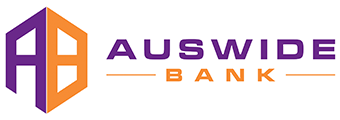
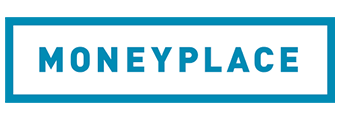
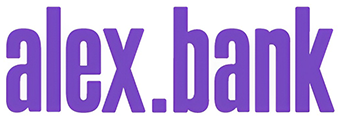




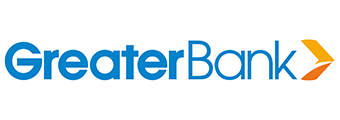
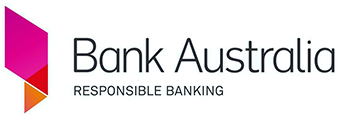




 Denise Raward
Denise Raward
 Harry O'Sullivan
Harry O'Sullivan

 Hanan Dervisevic
Hanan Dervisevic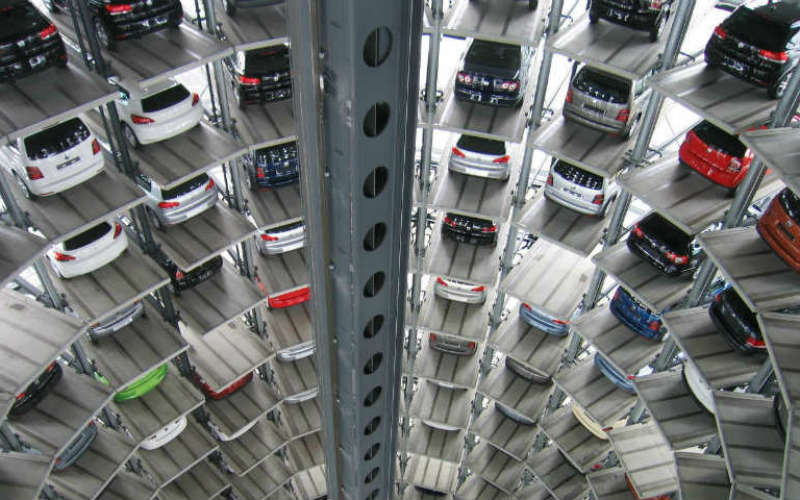
 Dominic Beattie
Dominic Beattie
